Page Not Found
Page not found. Your pixels are in another canvas.
A list of all the posts and pages found on the site. For you robots out there is an XML version available for digesting as well.
Page not found. Your pixels are in another canvas.
About me
This is a page not in th emain menu
Published:
This post will show up by default. To disable scheduling of future posts, edit config.yml and set future: false.
Published:
This is a sample blog post. Lorem ipsum I can’t remember the rest of lorem ipsum and don’t have an internet connection right now. Testing testing testing this blog post. Blog posts are cool.
Published:
This is a sample blog post. Lorem ipsum I can’t remember the rest of lorem ipsum and don’t have an internet connection right now. Testing testing testing this blog post. Blog posts are cool.
Published:
This is a sample blog post. Lorem ipsum I can’t remember the rest of lorem ipsum and don’t have an internet connection right now. Testing testing testing this blog post. Blog posts are cool.
Published:
This is a sample blog post. Lorem ipsum I can’t remember the rest of lorem ipsum and don’t have an internet connection right now. Testing testing testing this blog post. Blog posts are cool.
Machine Learning course taught by Andrew Ng on Coursera
Short description of portfolio item number 2 
Published in 2015 Fifth International Conference on Advances in Computing and Communications (ICACC), 2015
This paper presents a Self-Learning Hybrid Fuzzy-PID Controller developed for pressure control in a first order hydraulic tank system, featuring self-adjusting tuning parameters for improved performance.
Recommended citation: J Jithish, KS Arun Nath, Deepa Sivan, Biju C Oommen. (2015). "A Self-Tuning Hybrid Fuzzy-PID Controller for First Order Hydraulic Systems." 2015 Fifth International Conference on Advances in Computing and Communications (ICACC), pp.75-78. https://ieeexplore.ieee.org/abstract/document/7433779
Published in DIAS/EDUDM@ ISEC, 2017
This study presents a hybrid intelligent system integrating neural networks and fuzzy systems for predicting daily electricity demand in smart homes.
Recommended citation: J Jithish, Sriram Sankaran. (2017). "A Hybrid Adaptive Rule based System for Smart Home Energy Prediction." DIAS/EDUDM@ ISEC.
Published in DIAS/EDUDM@ ISEC, 2017
This study models the impact of code obfuscation algorithms on energy usage in embedded devices, analyzing the energy-security-performance trade-offs.
Recommended citation: Athul Raj, J Jithish, Sriram Sankaran. (2017). "Modelling the Impact of Code Obfuscation on Energy Usage." DIAS/EDUDM@ ISEC.
Published in 2017 IEEE Region 10 Symposium (TENSYMP), 2017
This study develops a hybrid intelligent system for domestic water usage prediction using an Adaptive Neuro-Fuzzy Inference System (ANFIS).
Recommended citation: J Jithish, Sriram Sankaran. (2017). "A neuro-fuzzy approach for domestic water usage prediction." 2017 IEEE Region 10 Symposium (TENSYMP), pp.1-5.
Published in 2017 International Conference on Advances in Computing, Communications and Informatics (ICACCI), 2017
This paper models sybil attacks in IoT, evaluating its impact on performance, and develops a defense mechanism based on behavioural profiling of nodes using an enhanced AODV protocol.
Recommended citation: Anjana Rajan, J Jithish, Sriram Sankaran. (2017). "Sybil attack in IoT: Modelling and defenses." 2017 International Conference on Advances in Computing, Communications and Informatics (ICACCI), pp.2323-2327.
Published in 2017 IEEE International Conference on Consumer Electronics-Asia (ICCE-Asia), 2017
This study develops an analytical model for DoS and Deception attacks in NCS, proposing a symmetric key encryption based mechanism for securing NCS from such attacks.
Recommended citation: J Jithish, Sriram Sankaran. (2017). "Securing networked control systems: Modeling attacks and defenses." 2017 IEEE International Conference on Consumer Electronics-Asia (ICCE-Asia), pp.7-11.
Published in 2018 10th International Conference on Communication Systems & Networks (COMSNETS), 2018
This work uses Markov Decision Processes (MDP) to decide the threshold for initiating security mechanisms in CPS, aiming to balance the trade-off between system performance and security.
Recommended citation: J Jithish, Sriram Sankaran. (2018). "Towards a decision-centric approach for securing cyber physical systems." 2018 10th International Conference on Communication Systems & Networks (COMSNETS), pp.500-502.
Published in Journal of Intelligent & Fuzzy Systems, 2019
This work leverages the Lotka-Volterra (LV) competition model to analyze the impact of time-delays in an NCS compromised by an adversary, proposing a fuzzy logic based defense mechanism.
Recommended citation: J Jithish, Sriram Sankaran. (2019). "A bio-inspired approach to secure networked control systems against adversarial delays." Journal of Intelligent & Fuzzy Systems, Vol. 36, No. 4, pp.3779-3790.
Published in 2019 IEEE 16th India Council International Conference (INDICON), 2019
This work proposes a novel approach using statistical analysis and information theory to detect malware-based attacks on smartphones, leveraging data such as CPU usage, RAM utilization, and network data.
Recommended citation: Jai Prakash, Sriram Sankaran, J Jithish. (2019). "Attack detection based on statistical analysis of smartphone resource utilization." 2019 IEEE 16th India Council International Conference (INDICON), pp.1-4. https://ieeexplore.ieee.org/abstract/document/9030310
Published in 2020 International Conference on Communication Systems & NETworkS (COMSNETS), 2020
This work presents an analytical framework based on non-cooperative game theory to evaluate the trustworthiness of individual sensor nodes in CPS, using a game-theoretic model to derive a trust threshold criterion.
Recommended citation: J Jithish, Sriram Sankaran, Krishnashree Achuthan. (2020). "Towards ensuring trustworthiness in cyber-physical systems: A game-theoretic approach." 2020 International Conference on Communication Systems & NETworkS (COMSNETS), pp.626-629. https://ieeexplore.ieee.org/abstract/document/9027362
Published in Journal of Ambient Intelligence and Humanized Computing, 2021
This paper discusses a novel approach for balancing energy efficiency and security in Cyber-Physical Systems (CPSs), focusing on dynamic security mechanisms activated during cyberattacks.
Recommended citation: J Jithish, Sriram Sankaran, Krishnashree Achuthan. (2021). "A Decision-centric approach for secure and energy-efficient cyber-physical systems." Journal of Ambient Intelligence and Humanized Computing, 12, pp.417-441. https://link.springer.com/article/10.1007/s12652-020-01995-z
Published in Transactions on Emerging Telecommunications Technologies, 2021
This work presents an analytical framework based on noncooperative game theory to evaluate the trustworthiness of individual nodes in CPSs, with applications to multiloop UAV control.
Recommended citation: J Jithish, Sriram Sankaran. (2021). "A game‐theoretic approach for ensuring trustworthiness in cyber‐physical systems with applications to multiloop UAV control." Transactions on Emerging Telecommunications Technologies, 32(5), e4042. https://onlinelibrary.wiley.com/doi/abs/10.1002/ett.4042
Published in Amrita Vishwa Vidyapeetham, 2022
This work by J Jithish focuses on predictive modelling approaches aimed at enhancing the security and energy efficiency of Cyber Physical Systems.
Recommended citation: J Jithish. (2022). "Predictive Modelling Based Approaches for Secure and Energy Efficient Cyber Physical Systems." Amrita Vishwa Vidyapeetham. https://shodhganga.inflibnet.ac.in/handle/10603/367401
Published in IEEE Access, 2023
This paper discusses the integration of Information and Communication Technologies (ICT) in smart grids for anomaly detection using Machine Learning (ML) techniques, focusing on privacy-preserving federated learning approaches.
Recommended citation: J Jithish, Bithin Alangot, Nagarajan Mahalingam, Kiat Seng Yeo. (2023). "Distributed Anomaly Detection in Smart Grids: A Federated Learning-Based Approach." IEEE Access, 11, pp.7157-7179. https://ieeexplore.ieee.org/abstract/document/10018378/
Published:
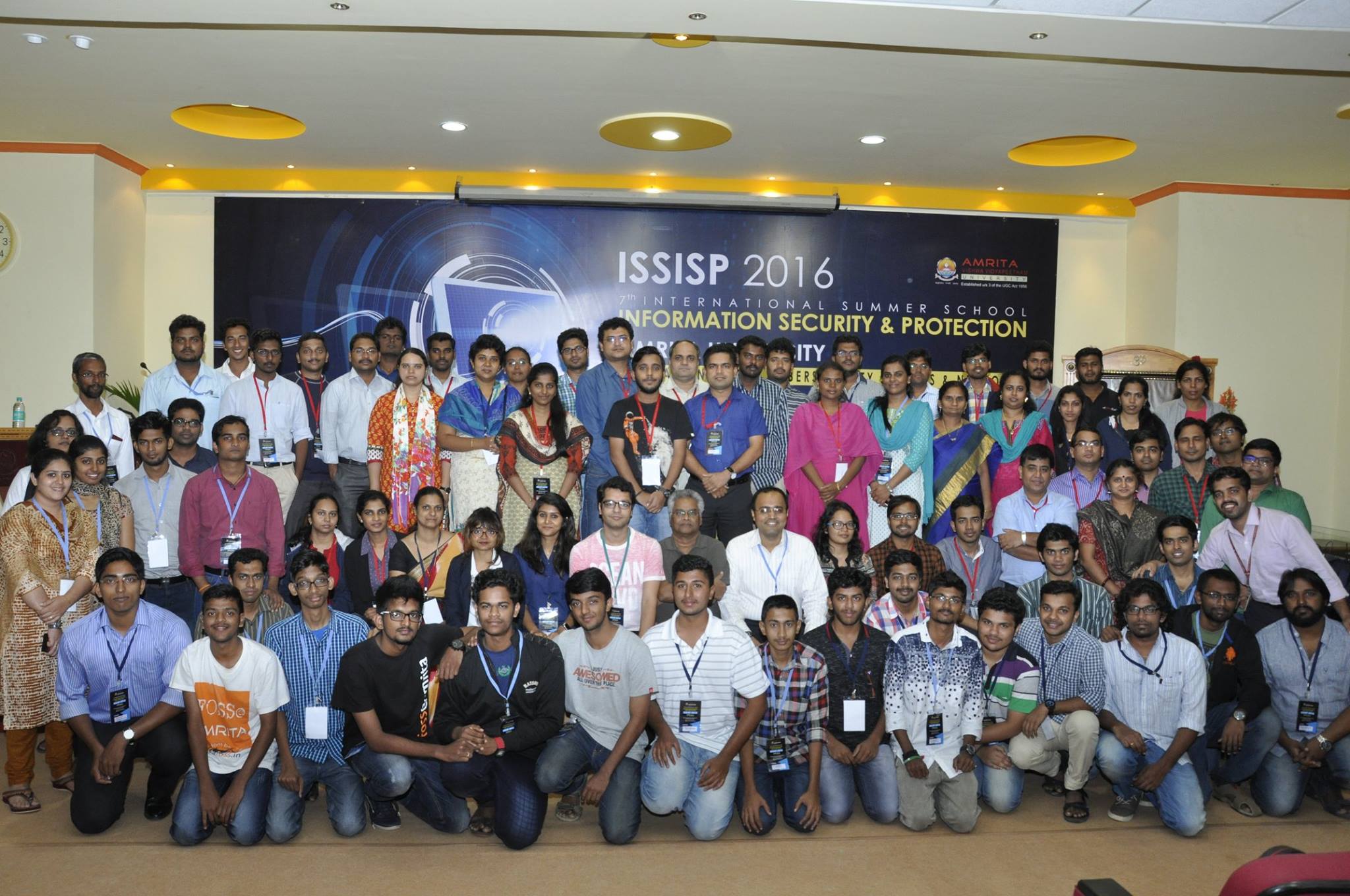
Published:
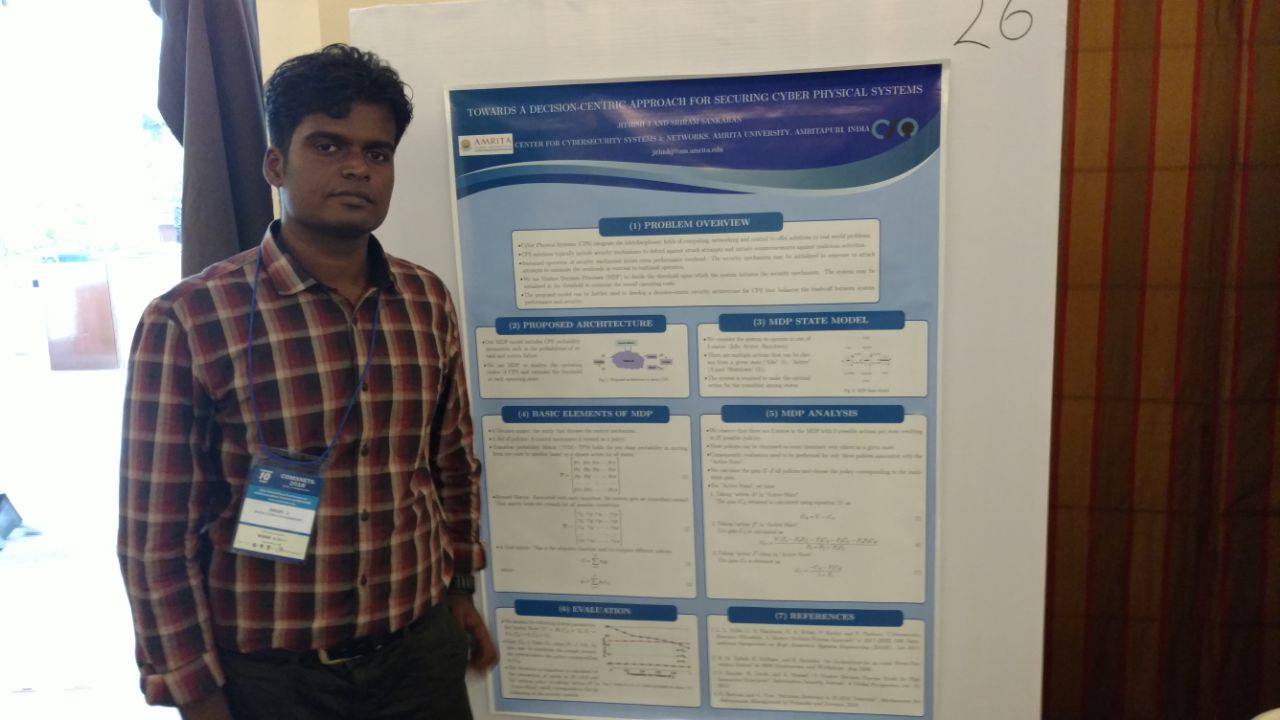
Published:
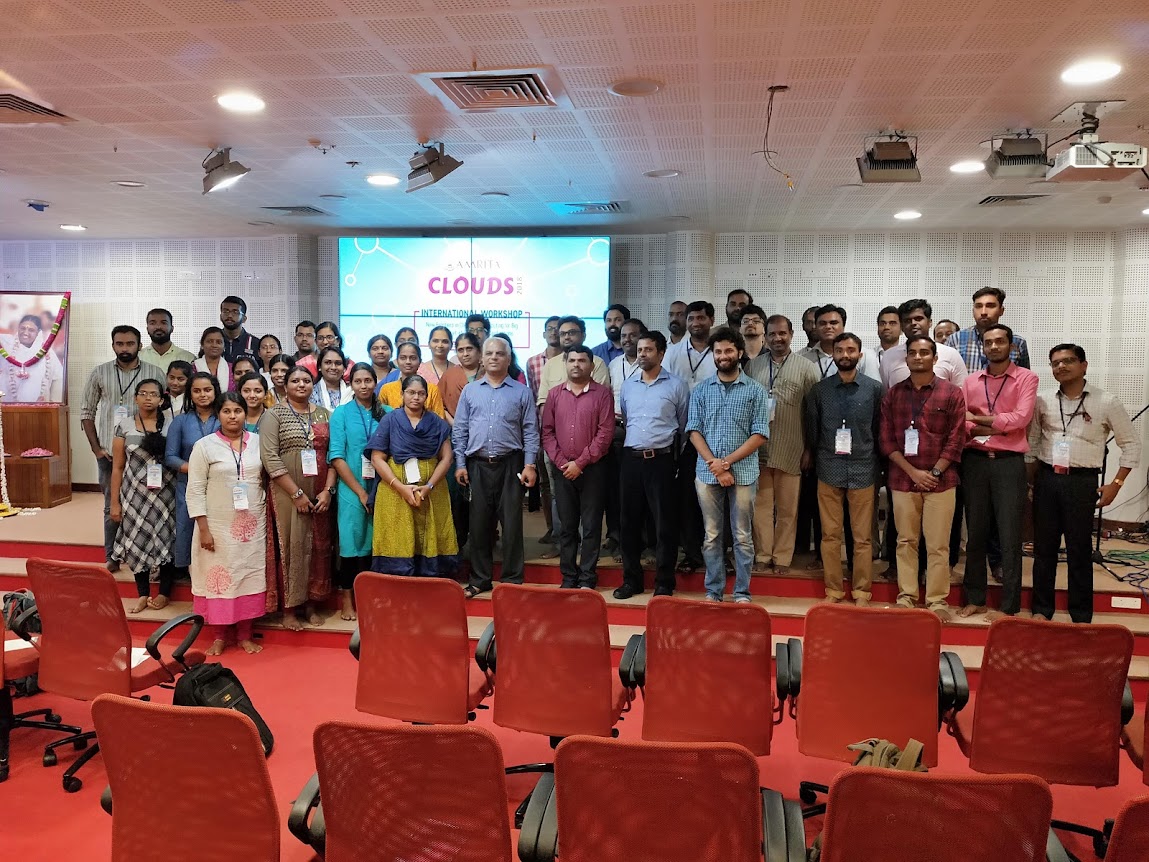
Published:
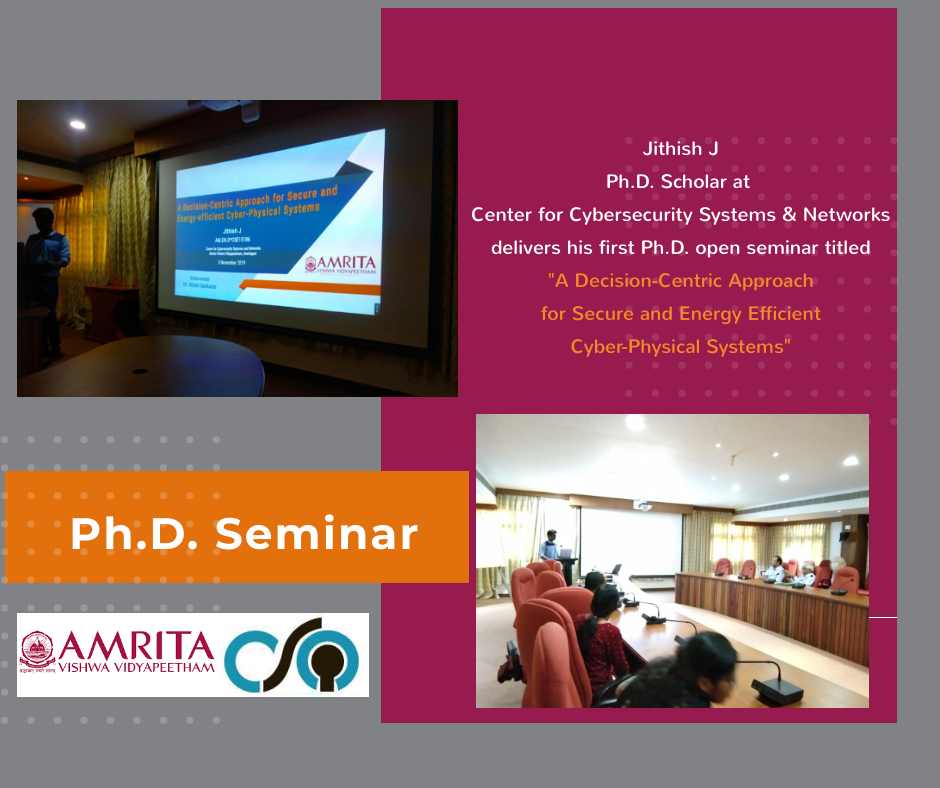
Published:
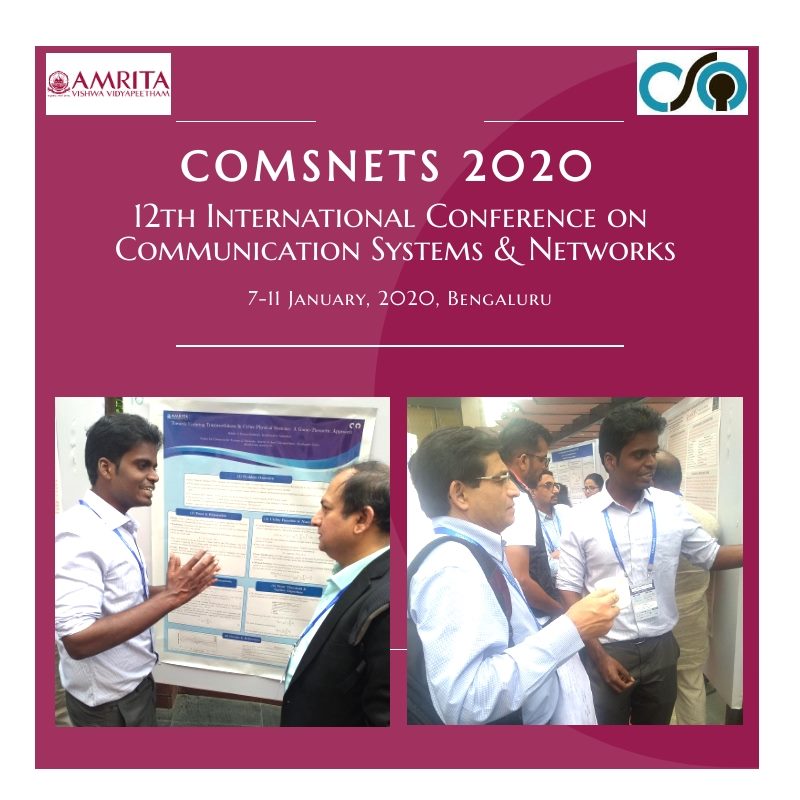
Published:
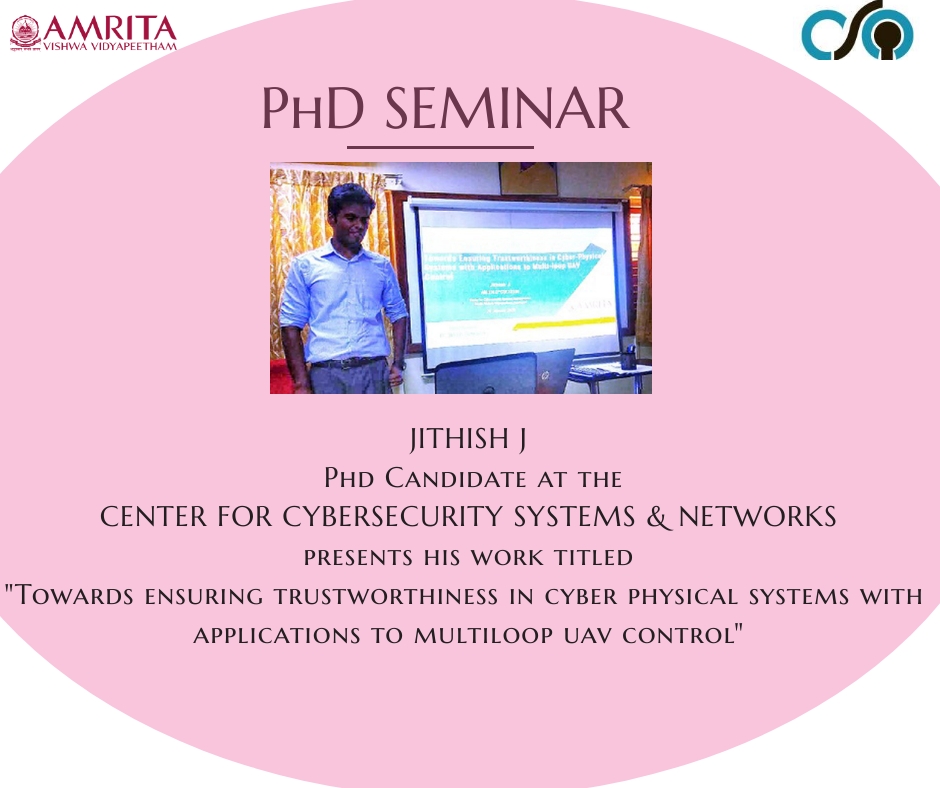
Undergraduate course, Amrita Vishwa Vidyapeetham, Center for Cybersecurity Systems and Networks, 2019
Undergraduate course, Amrita Vishwa Vidyapeetham, Center for Cybersecurity Systems and Networks, 2019